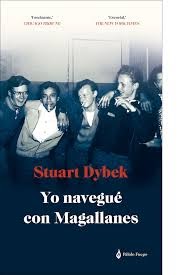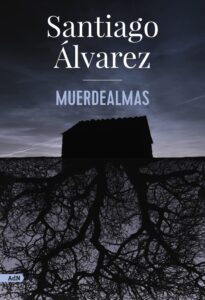
Original language: English
Original title: I sailed with Magellan
Translation: Jose Luis Amores
Year of publication: 2003
Valuation: Highly recommended
Who knows why memory or dreams rescue simple objects – a bike, a cardigan, a sleigh – and turn them into emblems of childhood.
What is I sailed with Magellan: a novel, a book of stories, the chronicle of an era, the portrait of a generation, all of the above? The short answer would say “all of the above”; The long one, for its part, would say that it is a set of more or less interconnected stories with a common protagonist or witness, which ends up resulting in a biographical novel in which Life is a collection of “Great Moments” (the quotes are mine).
There are eleven Moments that make up this volume, set in the 50s and 60s in the peripheral neighborhoods of Chicago, places where Poles, Mexicans, Italians, etc. coexist. Following a more or less chronological order, we witness “Perry Katzek’s stellar moments” (childhood episodes, loves, various attempts, comings, goings, deaths, etc.), narrated in a past that is sometimes more real than the present.
Among the most notable aspects of the novel, I would like to mention the following:
- how it is growing. From more or less classic childhood memories to mature stories, the texts gain layers and meanings, becoming more complex and exciting.
- the different voices of the text, which range from the Dickensian to the “Kerouacquian”, although his closest reference would be my beloved Stephen Dixon both for his approach and for his view and construction of the texts.
- its character as a chronicle of an era and generation: war veterans, beats, hippies, gang members, immigrants for whom adapting to the new country is a challenge, etc. The other America of the 50s and 60s.
- its protagonists and the relationships between them: Uncle Lefty, Mick, Perry, their parents… Complex, contradictory, endearing and deeply human.
- his investigation into the mechanisms of memory.
In short, a book that takes some time to get going (perhaps the style, perhaps those more or less conventional childhood stories), but once it takes off it leaves us with texts like Breasts, We didn’t (my favorite, for its deep beauty and sadness) or What do you want (final point of a permanent search and escape that pursues its protagonists) that will last in the memory of this reader.
Source: https://unlibroaldia.blogspot.com/2024/06/stuart-dybek-yo-navegue-con-magallanes.html

